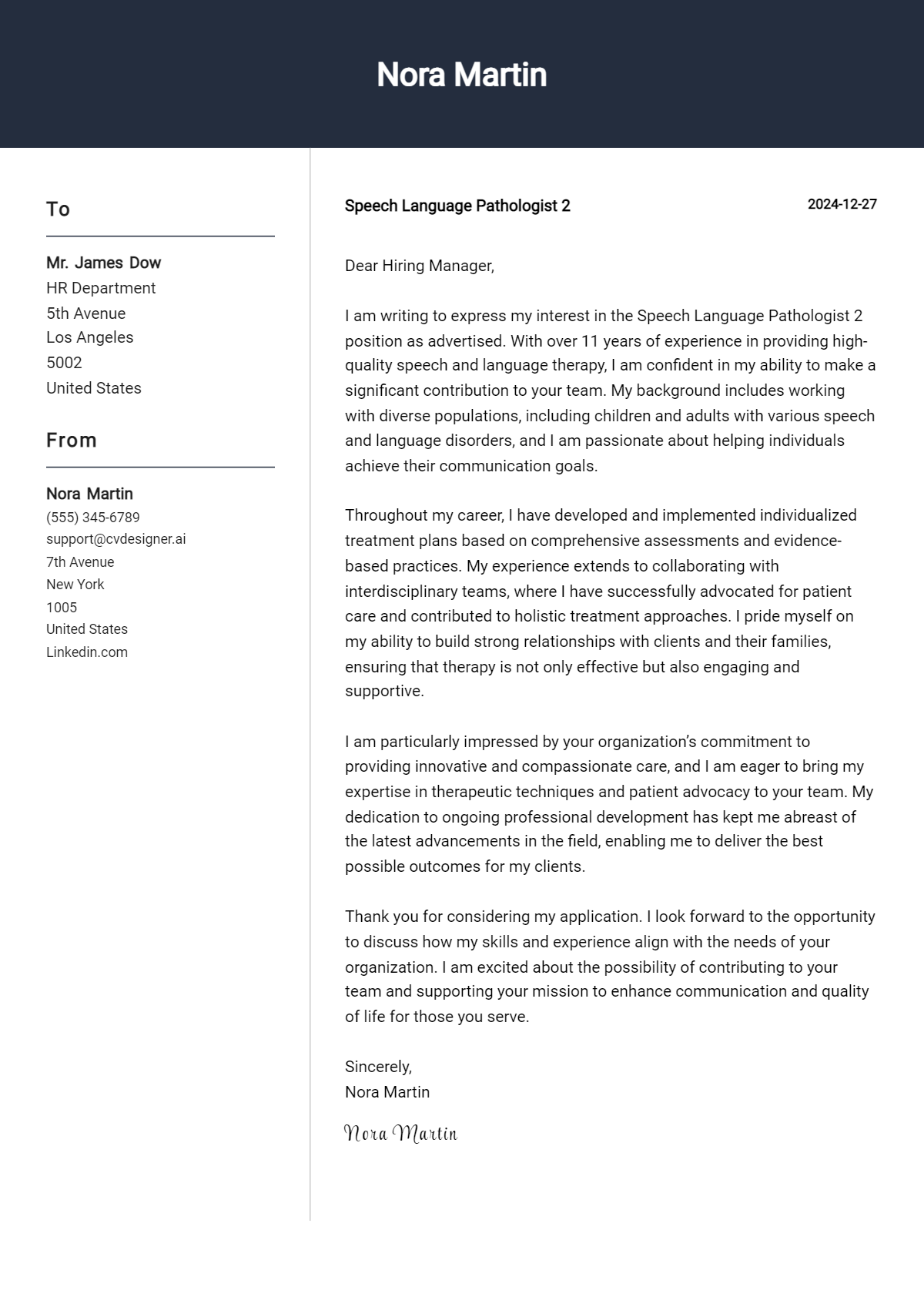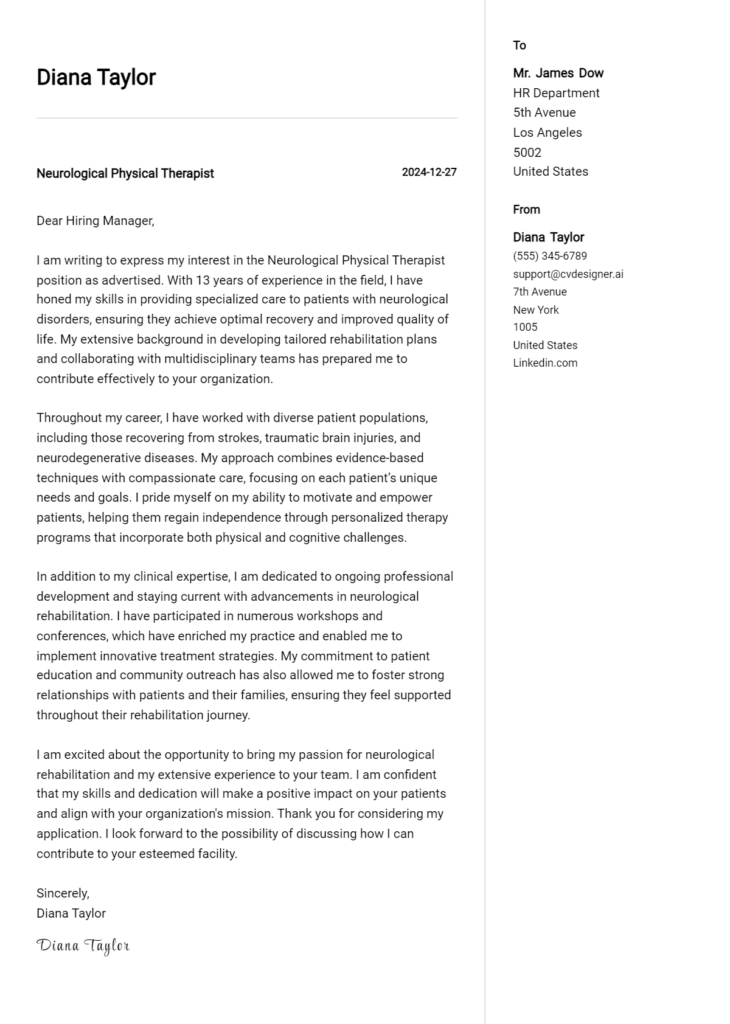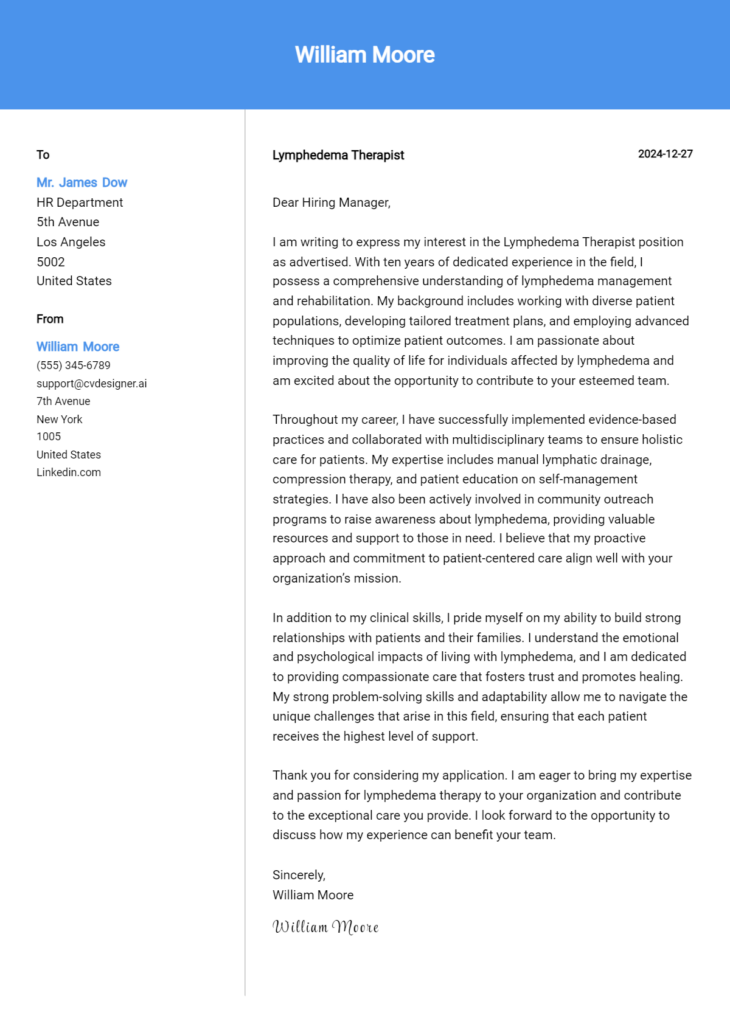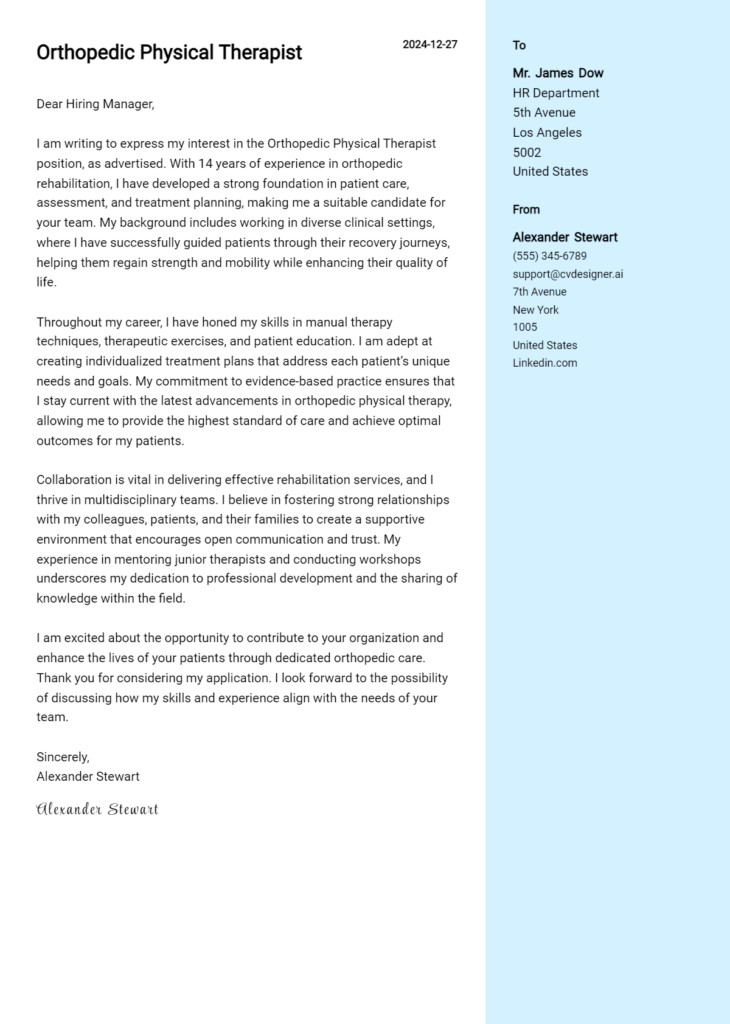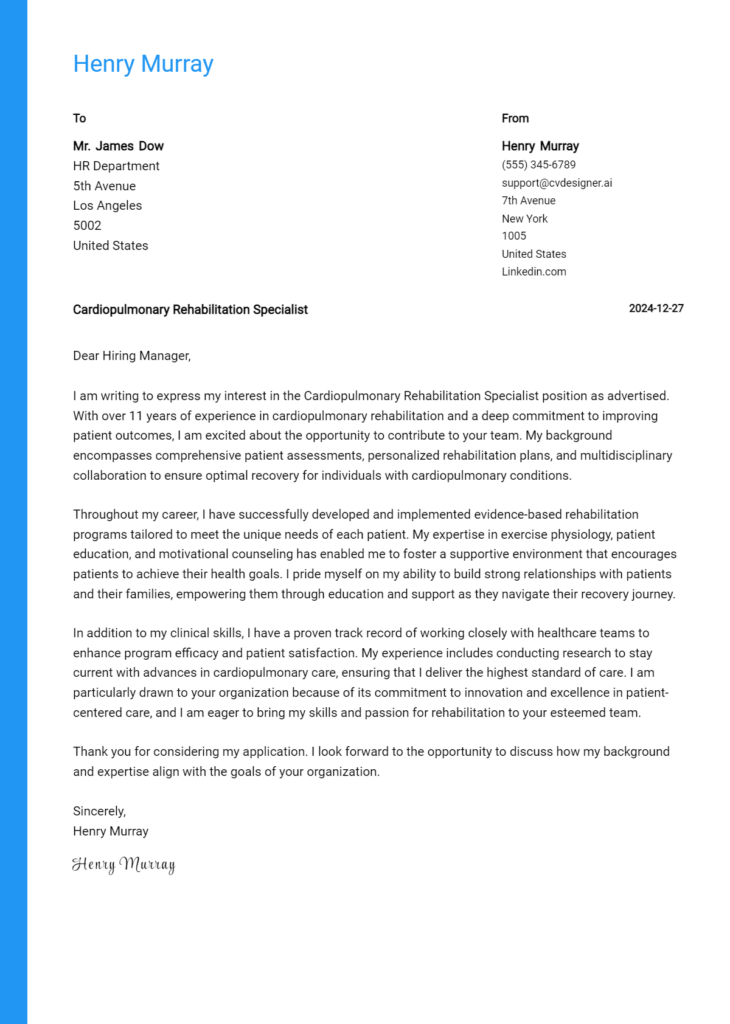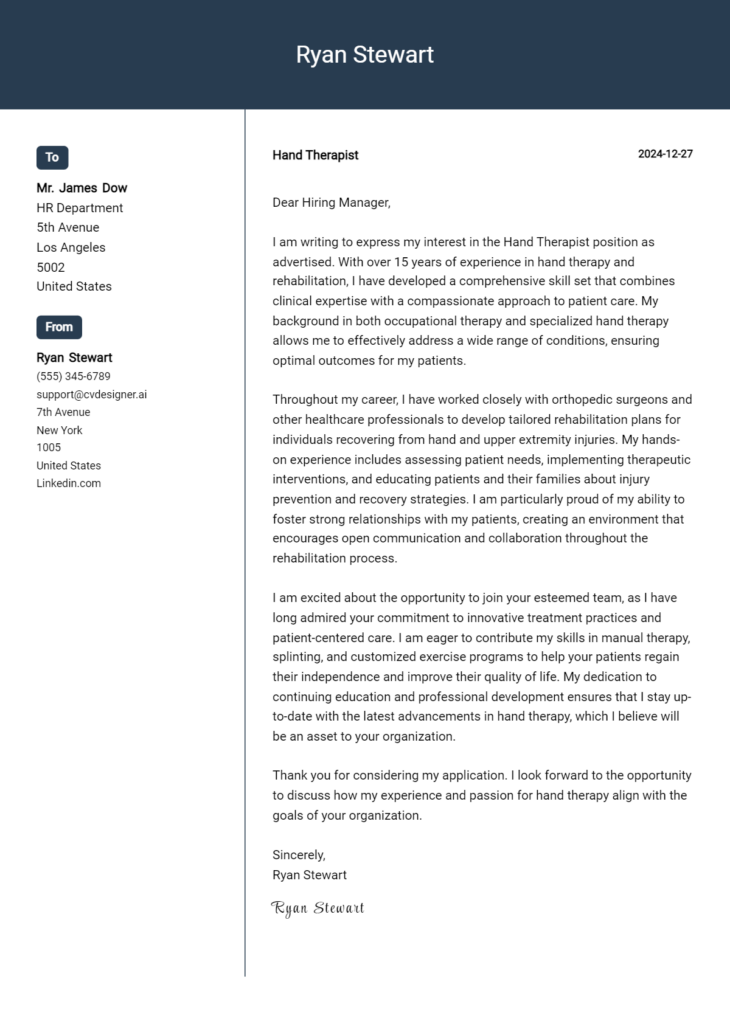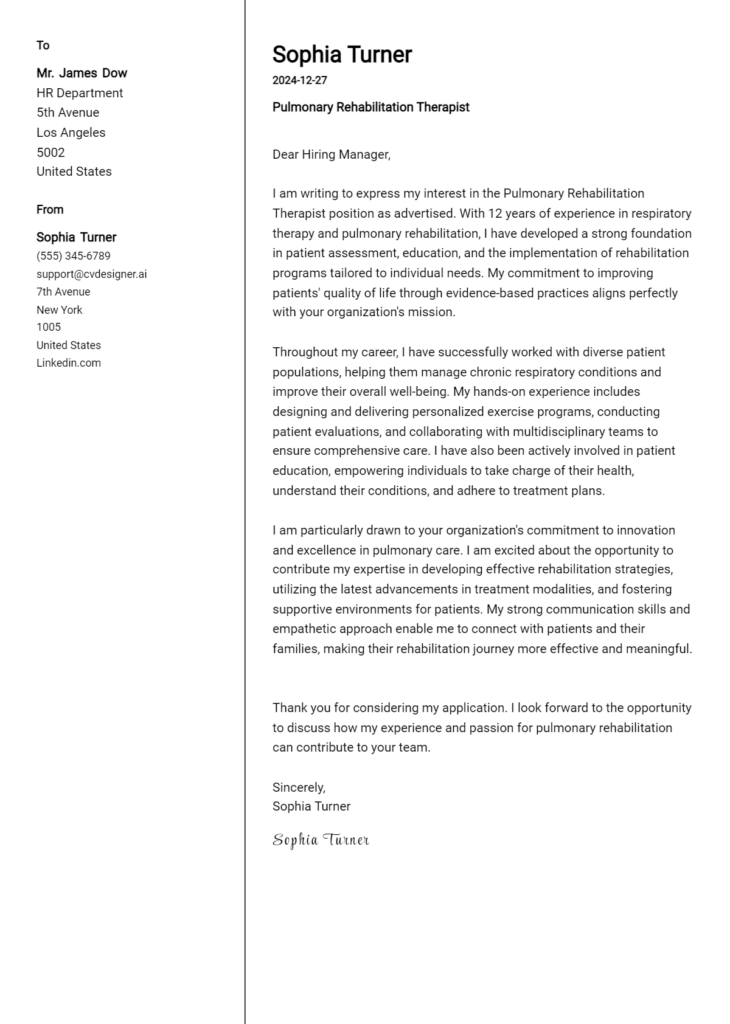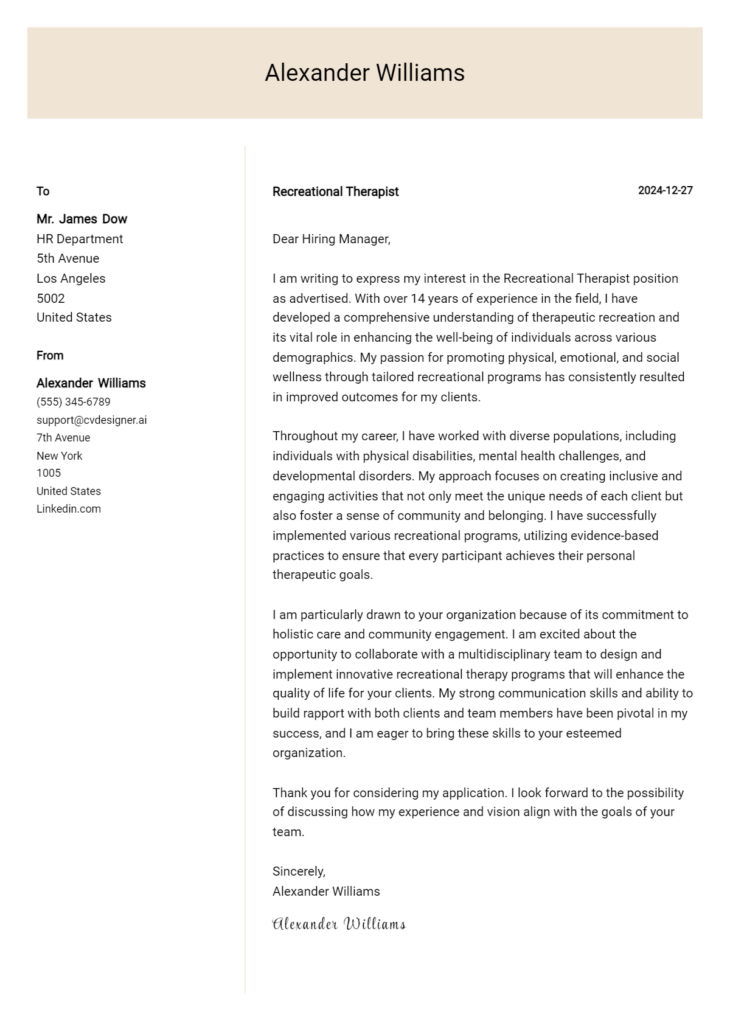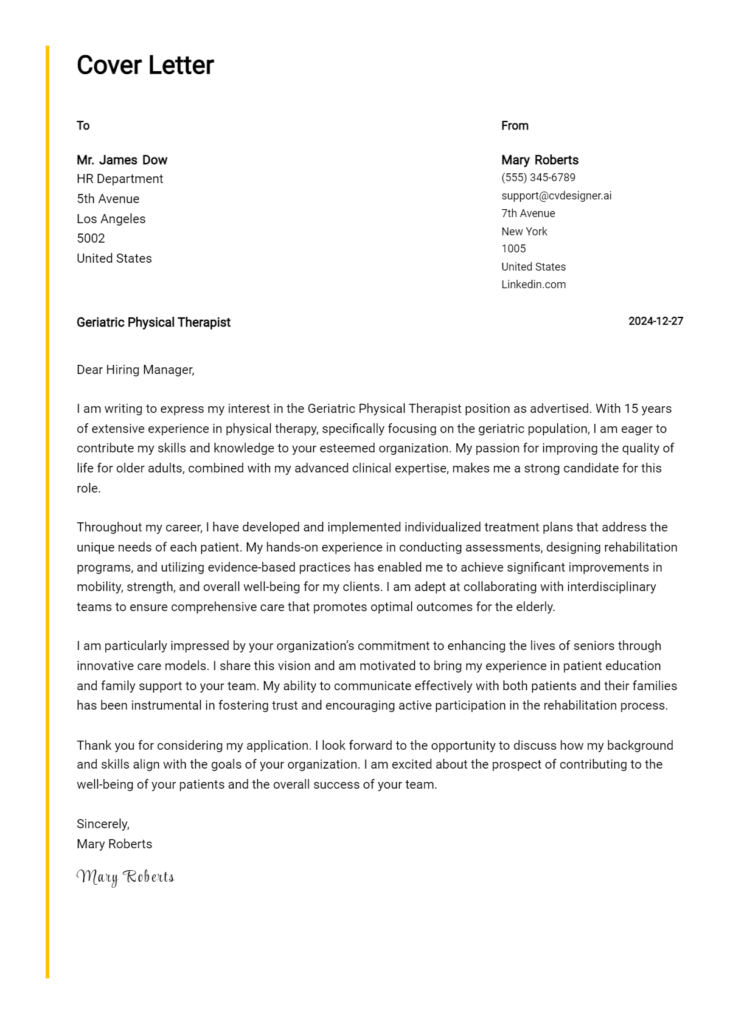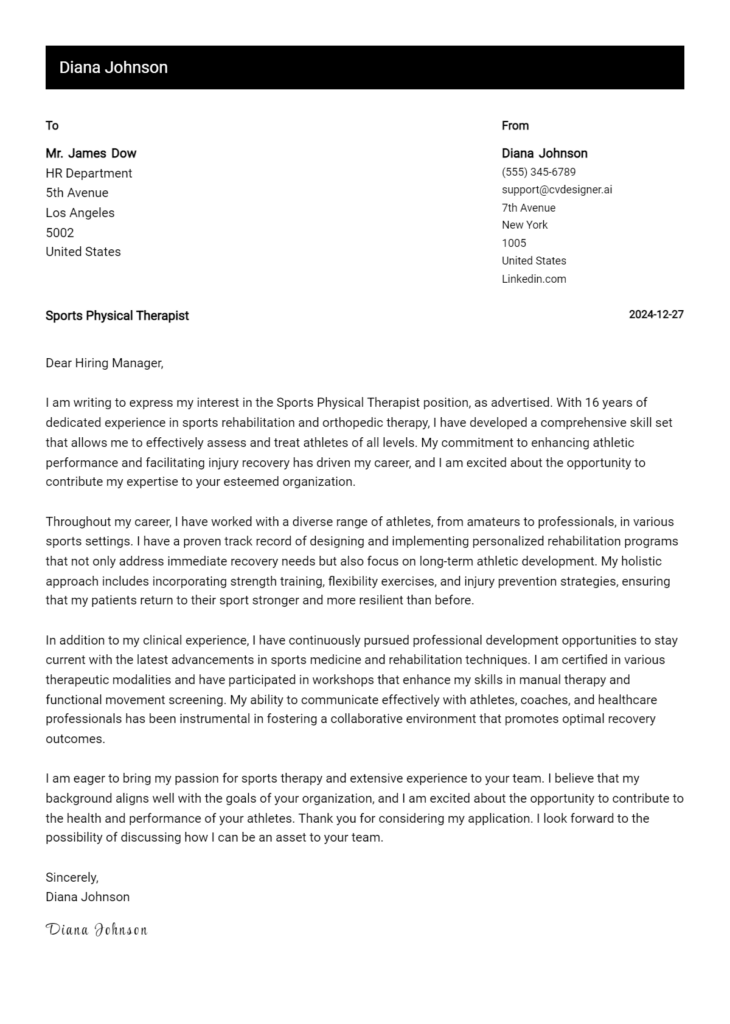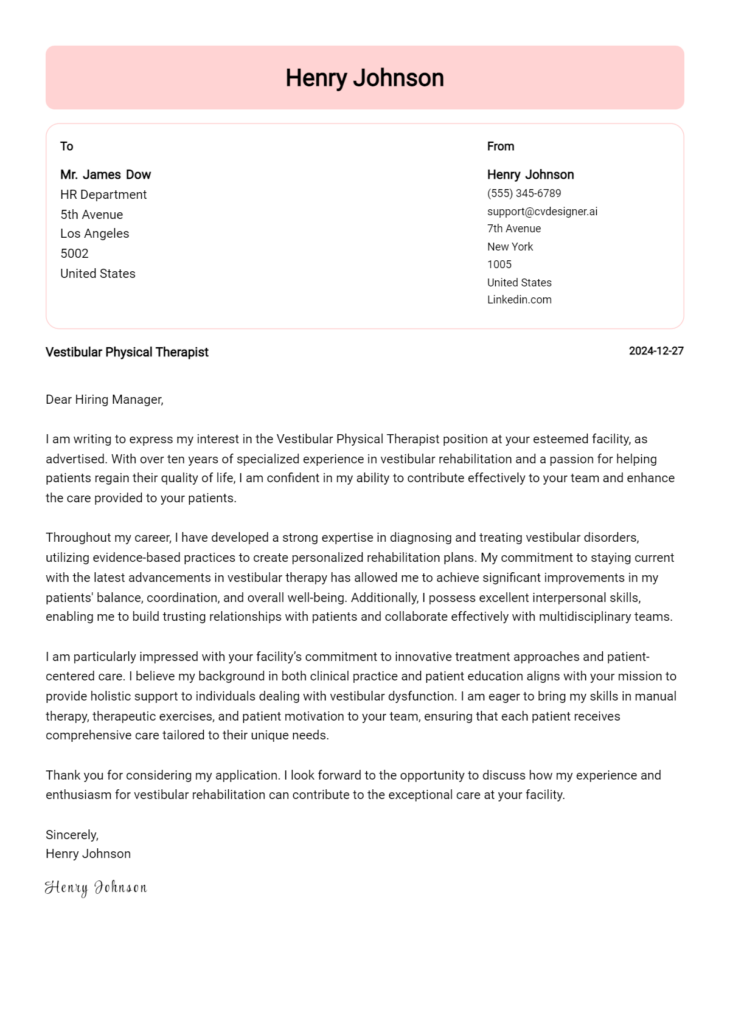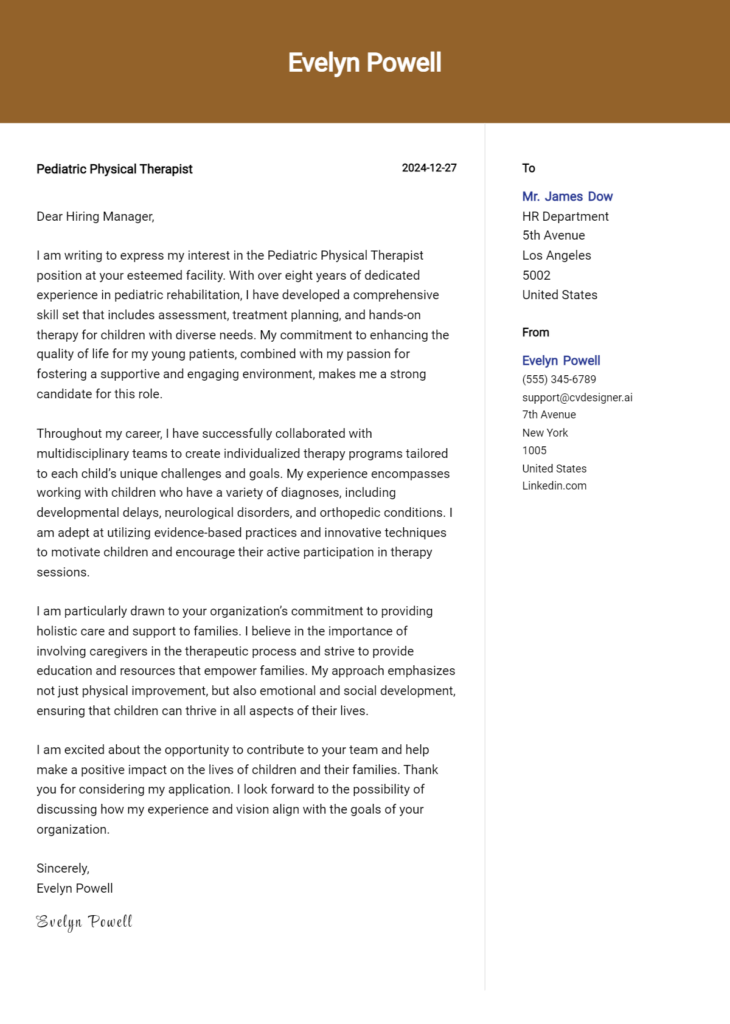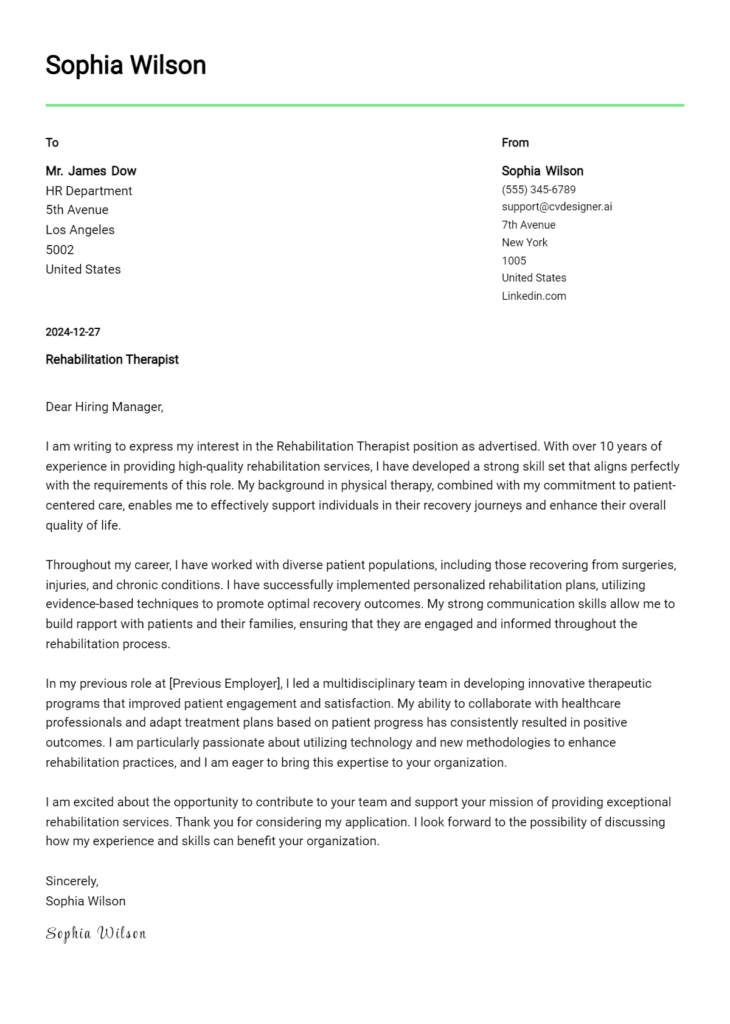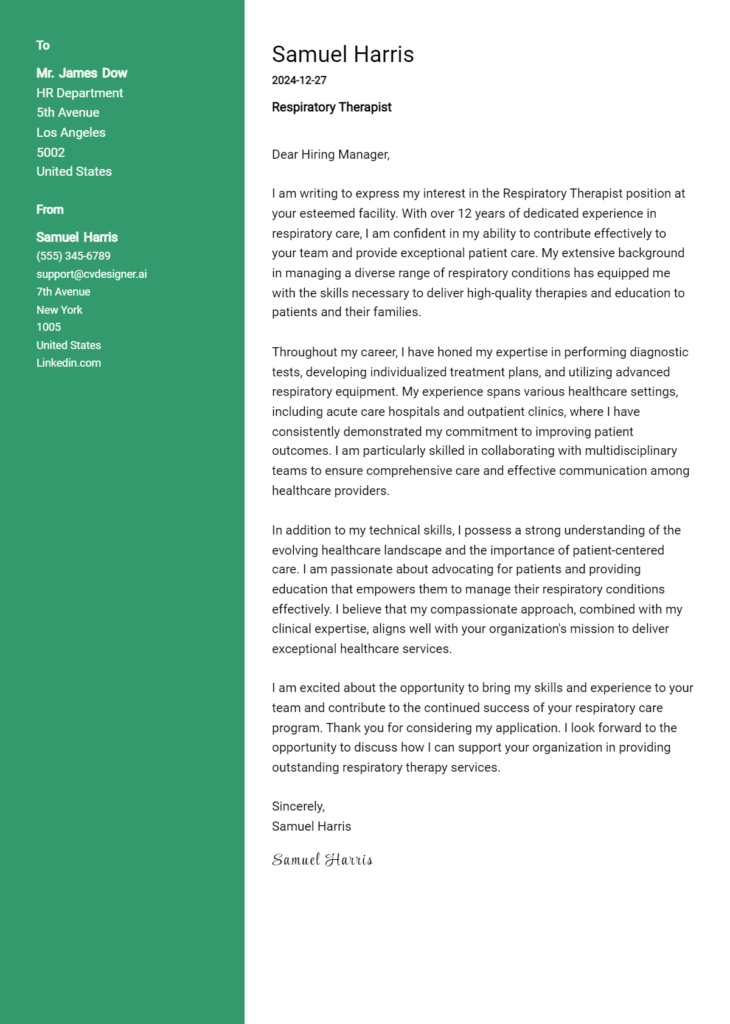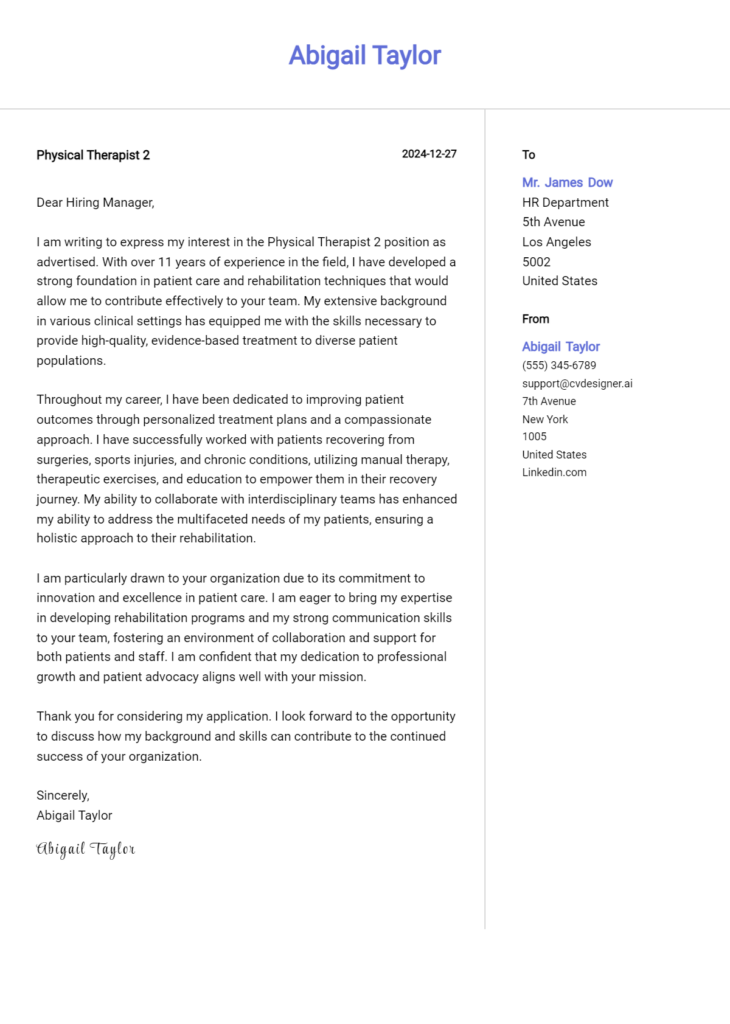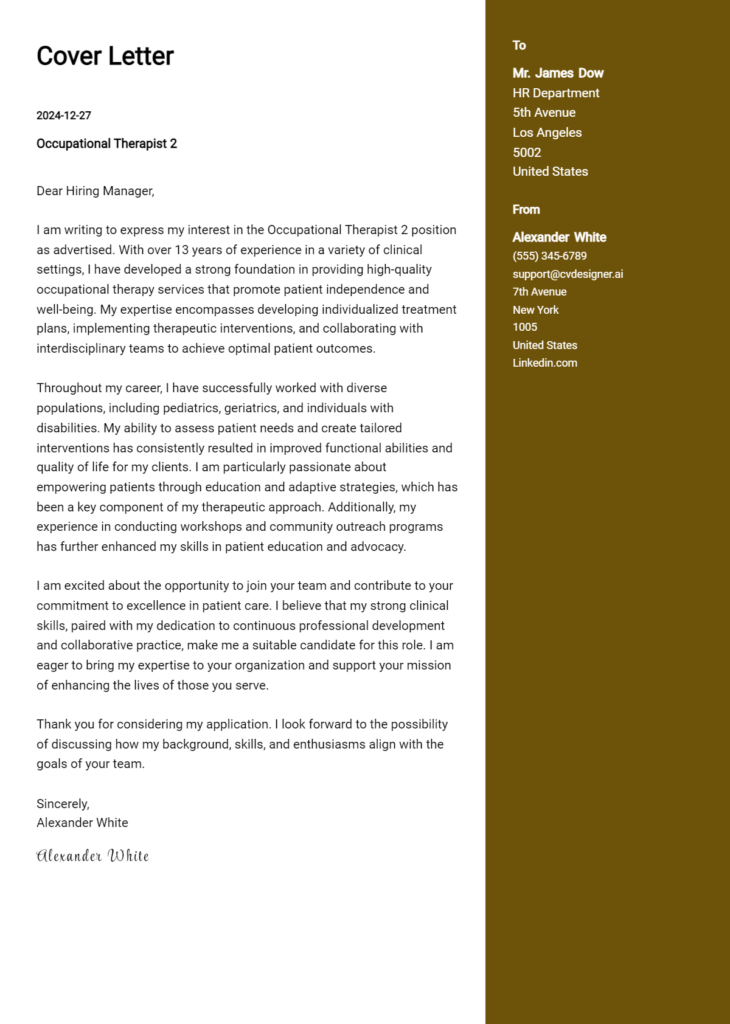Speech Language Pathologist 2 Cover Letter Examples
Explore additional Speech Language Pathologist 2 cover letter samples and guides and see what works for your level of experience or role.
How to Format a Speech-Language Pathologist Cover Letter?
Crafting a compelling cover letter is essential for Speech-Language Pathologists, as it serves as your first opportunity to make a strong impression on potential employers. A well-structured cover letter not only showcases your qualifications and experience but also reflects your communication skills—an integral part of the SLP profession. The format of your cover letter can demonstrate your attention to detail and ability to convey information clearly, both of which are crucial in speech-language pathology.
In this guide, we will explore how to effectively structure your cover letter, providing insights and examples tailored for SLPs to help you create a standout document.
We will focus on the essential components of a professional cover letter, including:
- Cover Letter Header
- Cover Letter Greeting
- Cover Letter Introduction
- Cover Letter Body
- Cover Letter Closing
Each section is vital in presenting your qualifications and professionalism. Let’s delve into each part and learn how to make your Speech-Language Pathologist cover letter shine.
Importance of the Cover Letter Header for a Speech-Language Pathologist
A well-structured cover letter header is crucial for a Speech-Language Pathologist as it establishes professionalism and provides the necessary information for the recipient to contact you easily. The header typically includes your contact information, the date, and the recipient's details. Clarity is essential; a neatly formatted header not only conveys your attention to detail but also sets the tone for the rest of your application. A strong header helps you make a positive first impression, while a weak one can detract from your qualifications.
Strong Example
Jane Doe 123 Speech Lane Communication City, ST 12345 jane.doe@email.com (123) 456-7890 October 1, 2023 Mr. John Smith Hiring Manager Speech Therapy Services 456 Healing Way Therapy Town, ST 67890
Weak Example
jane doe email: jane.doe@email.com phone: 123-456-7890 today's date to: john smith speech therapy services
The Importance of the Cover Letter Greeting for Speech-Language Pathologists
The greeting of your cover letter is crucial in establishing the tone for the rest of your application. It serves as your first point of contact with the hiring manager and reflects your professionalism and attention to detail. A personalized greeting demonstrates your effort to connect with the reader, suggesting that you are genuinely interested in the position and the organization. To craft an effective greeting, avoid generic phrases such as "To Whom It May Concern," and take the time to research the recipient's name—this small step can make a significant impact. By addressing the hiring manager directly, you set a positive tone and create a more engaging introduction to your qualifications as a Speech-Language Pathologist.
Strong Greeting Example
Dear Dr. Smith,
Weak Greeting Example
To Whom It May Concern,
Importance of a Well-Crafted Cover Letter Introduction for a Speech-Language Pathologist
A well-crafted cover letter introduction is essential for a Speech-Language Pathologist seeking to make a positive first impression on a hiring manager. This opening paragraph should not only capture the reader's attention but also convey the candidate's enthusiasm for the role and the organization. It serves as a snapshot of the candidate's qualifications, highlighting key skills or notable achievements that align with the job requirements. A strong introduction can set the tone for the rest of the cover letter, while a weak one may fail to engage the reader, causing the application to be overlooked. Below are examples of strong and weak cover letter introductions for a Speech-Language Pathologist position.
Strong Example
Dear [Hiring Manager's Name], I am excited to apply for the Speech-Language Pathologist position at [Company Name], as advertised on [Job Board/Company Website]. With over five years of experience in delivering evidence-based therapy to children with communication disorders, I have successfully improved the speech and language skills of my clients through tailored intervention strategies. My passion for helping individuals find their voice, combined with my dedication to ongoing professional development, makes me an ideal candidate for your team.
Weak Example
To Whom It May Concern, I am writing to apply for the Speech-Language Pathologist job. I have some experience in this field. I think I would be good at it.
Purpose of the Cover Letter Body for a Speech-Language Pathologist
The body of a cover letter for a Speech-Language Pathologist serves as a critical platform for candidates to articulate their professional qualifications, relevant experiences, and the unique value they bring to the potential employer. In this section, candidates should highlight specific projects or accomplishments that demonstrate their expertise in diagnosing and treating speech and language disorders. By providing concrete examples, such as successful interventions or collaboration with interdisciplinary teams, the candidate can effectively convey their ability to contribute positively to the organization's goals and enhance patient outcomes.
Strong Example
Dear [Hiring Manager's Name], I am excited to apply for the Speech-Language Pathologist position at [Company Name]. In my previous role at [Previous Company], I successfully developed and implemented a language intervention program that improved expressive language skills in 85% of the participating children within six months. Additionally, I collaborated with occupational therapists and educators to create personalized treatment plans, ensuring a holistic approach to each child's development. My dedication to evidence-based practices and continuing education has equipped me with the latest techniques in speech therapy, which I am eager to bring to your team. Sincerely, [Your Name]
Weak Example
Dear [Hiring Manager's Name], I am writing to express my interest in the Speech-Language Pathologist position at [Company Name]. I have worked in this field for several years and have experience with different types of speech issues. I believe I can help your patients. I have done some therapy sessions in the past and think I would be a good fit for your team. Best, [Your Name]
Importance of the Cover Letter Closing for a Speech-Language Pathologist
The closing paragraph of a cover letter is crucial for summarizing your qualifications, reiterating your enthusiasm for the Speech-Language Pathologist position, and encouraging the hiring manager to take the next steps, such as reviewing your resume or scheduling an interview. A strong closing reinforces your fit for the role and leaves a positive impression, while a weak closing may miss the opportunity to make a compelling final statement.
Strong Example
Thank you for considering my application for the Speech-Language Pathologist position. With my extensive experience in evaluating and treating communication disorders, along with my passion for helping clients achieve their goals, I am excited about the possibility of contributing to your team. I look forward to the opportunity to discuss my qualifications in further detail and am eager to explore how I can support your mission. Please feel free to contact me to schedule an interview at your earliest convenience. Thank you again for your time and consideration.
Weak Example
Thanks for reading my letter. I hope you look at my resume. I think I could help, but I’m not sure. Let me know if you want to talk.
Crafting an effective cover letter is a crucial step for candidates aspiring to become a Speech-Language Pathologist. A well-written cover letter not only highlights your qualifications but also showcases your passion for the field, along with your technical skills and problem-solving abilities. In this competitive job market, it's essential to illustrate your knowledge of the speech and language development lifecycle (SDLC), your ability to work collaboratively in a team, and your commitment to continuous learning. The following tips will guide you in creating a compelling cover letter that stands out to potential employers.
Tips for Writing a Cover Letter as a Speech-Language Pathologist
Highlight Your Technical Skills: Clearly outline your technical skills related to speech-language pathology, such as proficiency in assessment tools, therapy techniques, and familiarity with assistive technologies. Use specific examples to demonstrate how these skills have positively impacted your previous work or clinical experiences.
Showcase Problem-Solving Abilities: Use your cover letter to illustrate how you've effectively addressed challenges faced by clients. Describe a specific case where you developed a tailored treatment plan that led to measurable improvements, emphasizing your analytical thinking and adaptability.
Demonstrate Knowledge of SDLC: While discussing your experiences, include insights on your understanding of the speech and language development lifecycle. This could involve mentioning how you approach various stages of therapy, from assessment to intervention and follow-up, showcasing your methodical approach to treatment.
Emphasize Teamwork and Collaboration: Since working with interdisciplinary teams is crucial in speech-language pathology, include examples of successful collaborations with other healthcare professionals. Describe how you contributed to a team environment, improved communication, and ultimately enhanced patient outcomes.
Convey Passion for Continuous Learning: The field of speech-language pathology is ever-evolving, making continuous learning essential. Highlight any relevant workshops, certifications, or seminars you've attended, and express your commitment to staying updated with the latest research and techniques. This demonstrates your proactive approach to professional development.
By incorporating these tips into your cover letter, you'll be well on your way to making a strong impression on potential employers. For additional inspiration, check out cover letter templates or create your personalized cover letter using a cover letter builder.
Common Mistakes to Avoid in a Speech-Language Pathologist Cover Letter
Crafting a compelling cover letter is essential for making a strong impression as a Speech-Language Pathologist. Avoiding common mistakes can significantly enhance your chances of landing an interview. Here are some frequent missteps to watch out for:
Generic Opening: Using a standard greeting like "To Whom It May Concern" can make your letter feel impersonal. Instead, address it to a specific person whenever possible.
Lack of Specificity: Failing to mention the specific position you are applying for or the organization itself can signal a lack of interest. Tailor your letter to each job, referencing the unique aspects of the role.
Overloading with Jargon: While it's important to demonstrate your expertise, excessive technical language can alienate the reader. Aim for clarity and balance.
Neglecting to Showcase Relevant Experience: Not highlighting relevant clinical experiences or specialized skills can diminish your appeal. Use specific examples to illustrate your qualifications.
Ignoring Formatting Guidelines: A cluttered or unprofessional format can detract from your message. Follow an appropriate cover letter format to ensure readability.
Spelling and Grammar Errors: Typos and grammatical mistakes can undermine your professionalism. Always proofread your letter and consider using tools for additional checks.
Failing to Include a Call to Action: Concluding without inviting further discussion can leave the reader unsure of your intentions. End with a proactive statement expressing your desire for an interview.
By avoiding these pitfalls and utilizing helpful resources like cover letter examples, you can create a polished and effective cover letter that stands out in the competitive field of speech-language pathology.
Cover Letter FAQs for Speech-Language Pathologist
What should I include in my cover letter as a Speech-Language Pathologist?
Your cover letter should begin with a strong introduction that highlights your interest in the position and introduces your qualifications. Include details about your education and relevant certifications, such as your Master’s degree in Speech-Language Pathology and your state licensure. Discuss your clinical experience, emphasizing specific populations you've worked with, such as children, adults, or individuals with specific disorders. It's also effective to mention any specialized training or techniques you are proficient in. Finally, close with a compelling statement about your enthusiasm for the role and how you can contribute to the organization.
How long should my cover letter be?
A cover letter for a Speech-Language Pathologist should typically be one page long, comprising 3-4 paragraphs. This length allows you to effectively convey your qualifications, relevant experiences, and enthusiasm for the position without overwhelming the reader. Focus on clarity and conciseness; each paragraph should serve a specific purpose—introduction, qualifications, experience, and conclusion. Avoid lengthy sentences and jargon, instead opting for straightforward language that showcases your communication skills, which are vital in your profession.
Should I tailor my cover letter for each application?
Absolutely! Tailoring your cover letter for each application is crucial. Employers want to see that you’ve done your homework and understand the specific needs of their organization. Analyze the job description and identify keywords and essential skills they are seeking. Reflect these in your cover letter by providing concrete examples from your experience that align with their requirements. This customization not only demonstrates your genuine interest in the position but also highlights your suitability and readiness to meet the unique challenges of the role.
How can I effectively showcase my clinical experience in my cover letter?
To effectively showcase your clinical experience, start by mentioning the settings where you have practiced, such as schools, hospitals, or private practices. Highlight specific populations you have worked with and any particular disorders you have addressed, such as speech delays or language disorders. Use quantifiable achievements where possible, such as improvements observed in patient outcomes or successful interventions. Additionally, you can mention interdisciplinary collaboration with other healthcare professionals. This approach not only illustrates your hands-on experience but also emphasizes your ability to work within a team—a critical aspect of the role.
Build your Cover Letter in minutes
Use an AI-powered cover letter builder and have your letter done in 5 minutes. Just select your template and our software will guide you through the process.

